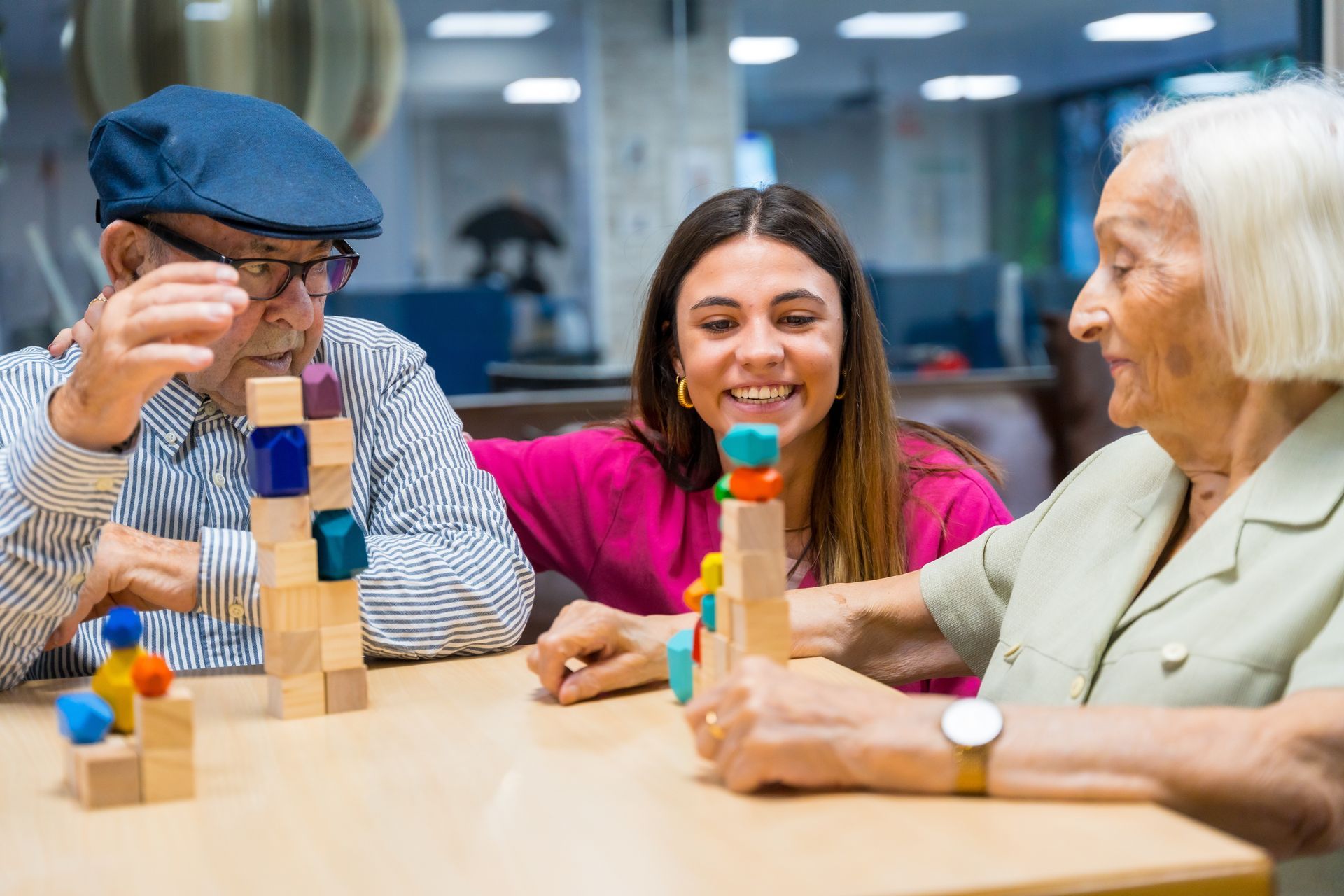BLOG
The Impact of Personalized Care in Dementia Treatment
Today's healthcare field recognizes personalized care as a key strategy in improving dementia patients' lives. This article aims to shed light on the critical importance of personalized dementia care, striving to offer an in-depth look at its core components and the positive impacts it brings.
What is Personalized Dementia Care?
Personalized dementia care is a tailored approach that recognizes the unique needs and preferences of each individual with dementia, aiming to provide customized support and interventions. This method stands in contrast to traditional care approaches, which often adopt a more generalized and uniform strategy for all residents. By embracing personalized care, caregivers and healthcare professionals can address the specific challenges and requirements of each person, fostering a more individualized and effective treatment environment.
Key Distinctions
- Tailored Interventions: Personalized dementia care involves tailoring activities, therapies, and daily routines to align with the individual's cognitive abilities and personal interests.
- Individualized Support: Unlike traditional care models, personalized care emphasizes one-on-one attention and support, acknowledging that each resident's journey with dementia is unique.
Embracing personalized care allows for a more nuanced and empathetic approach to dementia treatment, acknowledging the diverse needs and experiences of individuals living with this condition. By shifting the focus from a one-size-fits-all mentality to a personalized, person-centered approach, caregivers and healthcare providers can significantly enhance the quality of life for those in their care.
Benefits of Personalized Care in Dementia
Personalized dementia care brings forth a multitude of benefits, significantly impacting the lives of individuals living with this condition, as well as their families and caregivers. By tailoring care plans and interventions to align with the unique needs and preferences of each resident, the advantages of personalized dementia care become increasingly apparent.

Improved Quality of Life
- Enhanced Emotional Well-being: Activities and support contribute to a sense of purpose and fulfillment, fostering emotional well-being for individuals with dementia.
- Promotion of Independence: Personalized care empowers residents to engage in activities they enjoy and are capable of, promoting a sense of independence and autonomy.
Increased Safety
- Risk Mitigation: Individualized care plans address specific safety concerns and risks associated with each resident's cognitive and physical abilities, minimizing the likelihood of accidents or adverse events.
- Enhanced Supervision: By recognizing the unique needs of each, personalized care allows for more effective and attentive supervision, ensuring the safety and well-being of residents.
Enhanced Patient and Family Satisfaction
- Customized Support: Families witness the positive impact of personalized care, observing the improvement in their loved one's overall well-being and fulfillment.
- Effective Communication: The personalized approach fosters open and effective communication between caregivers, families, and residents, leading to increased satisfaction and peace of mind.
The personalized approach to dementia care not only enhances the quality of life for individuals with dementia but also fosters an environment of safety and satisfaction for both residents and their families.
Components of Personalized Dementia Care
To effectively implement personalized dementia care, several key components are integral to addressing the diverse needs of individuals living with this condition. These components encompass personalized activities, individualized care plans, and personalized medical treatment, collectively contributing to a holistic and person-centered approach.
Tailored Activities
- Cognitive Stimulating Exercises: Activities such as puzzles, reminiscence therapy, and music programs are designed to engage and stimulate cognitive function based on individual capabilities.
- Personal Interest-Based Programs: Activities aligned with personal interests and hobbies create a sense of familiarity and joy, promoting emotional well-being and social engagement.
Individualized Care Plans
- Comprehensive Assessment: Each resident undergoes a thorough assessment to identify their unique needs, preferences, and abilities, forming the basis for personalized care plans.
- Customized Support: Care plans are tailored to address specific challenges, outlining individualized approaches for daily living, therapy, and social interaction.
Personalized Medical Treatment
- Medication Management: Individualized medication plans are developed to suit the specific requirements and responses of each resident, ensuring optimal symptom management and overall well-being.
- Specialized Therapeutic Interventions: Personalized medical treatments, including specialized therapies and interventions, are meant to address the unique cognitive and physical needs of individuals with dementia.
By integrating these components into the care framework, personalized dementia care encapsulates a comprehensive and individualized approach, ensuring that each resident receives individualized support and interventions that cater to their distinct needs and preferences.
The Future of Dementia Treatment
The future of dementia treatment holds promising prospects for the continued evolution and enhancement of personalized care approaches. As research and innovation in the field of dementia care advance, personalized treatment methods are expected to undergo significant advancements, further optimizing the quality of care and support for individuals living with dementia.

Technological Innovations
- Advancements in Assistive Technologies: Future developments may introduce sophisticated assistive technologies specific to the needs and challenges of individuals with dementia, enhancing safety and independence.
- Integration of Artificial Intelligence: AI-driven tools may facilitate personalized monitoring and intervention, offering real-time insights and support based on individual behavior and needs.
Precision Medicine
- Genomic Research: Advancements in genomic studies may lead to personalized treatment approaches, identifying genetic factors that influence the progression and manifestation of dementia, and enabling targeted interventions.
- Pharmaceutical Solutions: Personalized medication regimens may be developed based on genetic predispositions and individual responses, optimizing the efficacy and safety of pharmaceutical treatments.
Person-Centered Care Models
- Emphasis on Individual Preferences: Future care models may place greater emphasis on understanding and integrating the unique life histories, preferences, and cultural backgrounds of individuals with dementia into their care plans.
- Community-Centric Approaches: Collaborative community initiatives and support networks may expand, fostering inclusive and person-centered environments that promote social engagement and meaningful interactions.
The future of treating dementia is on the cusp of transformation, with a focus on incorporating cutting-edge technology, precision medicine, and care models centered on the individual. These advancements aim to significantly enhance the quality of personalized care for those living with dementia.
Assured Senior Living's Approach
Assured Senior Living showcases its commitment to personalized dementia care through unique methods and a deep focus on individualized resident experiences. They incorporate cutting-edge practices and a person-centered approach, revolutionizing dementia care.
Neighborhood-Style Communities
- Home-Like Setting: The design of small, neighborhood clusters of homes creates a familiar and comforting environment, promoting a sense of belonging and community among residents.
- Private Apartment Suites: Each resident has their own private apartment suite within a shared home, fostering independence while enabling social engagement through communal living spaces.
Life Enrichment Programs
- Individualized Activities: Personalized activities and programs are designed to align with the capabilities and interests of each resident, promoting cognitive stimulation and emotional well-being.
- Innovative Initiatives: Assured Senior Living incorporates innovative programs such as Rendever Virtual Reality and Linked Senior, enriching the lives of residents through immersive experiences and personalized engagement.
All-Inclusive Personalized Care
- Round-the-Clock Availability: The provision of 24/7 staff availability ensures that residents receive attentive and personalized support, addressing their needs and concerns promptly and comprehensively.
- Comprehensive Services: Assured Senior Living offers a comprehensive range of services, including medication management, housekeeping, meal preparation, and assistance with personal care, all encompassed within an all-inclusive pricing structure.
Assured Senior Living's approach to dementia care combines innovative programs, holistic support, and a strong dedication to fostering an environment where individuals with dementia can flourish and enjoy a higher quality of life.
Personalized care revolutionizes dementia treatment by providing customized support, improving safety, and nurturing a sense of purpose for those with dementia. The individualized nature of this care model not only elevates the quality of life for residents but also provides families with peace of mind. Caregivers and facilities are urged to adopt this method, acknowledging its significant role in fostering a nurturing and engaging environment for those under their care. For more on how personalized care can enhance the lives of those living with dementia, and to explore the specialized services offered, visit Assured Senior Living.
There is a better way. We are redefining memory care for the modern world.
Download our free guide, A Family Guide to Funding Senior Care & Housing. Or contact us today.















